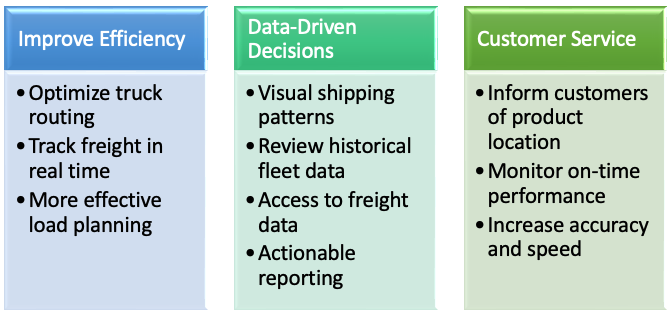 Strengthening your supply chain one link at a time.
Strengthening your supply chain one link at a time.
A Transportation Management System (TMS) is often what comes to mind first when discussing software to support transportation operations. While a TMS can be a critical component, it is one of many systems that can be leveraged to optimize the movement of, and improve visibility to, goods.
A TMS can optimize the use of transportation resources to manage inbound, internal & outbound shipments at the lowest cost consistent with customer service standards & trading partner requirements.
Companies with their own dedicated fleet can utilize a Fleet Management System. A TMS Fleet Management System also provides visibility into daily transportation operations to ensure freight and goods are delivered on time. Sometimes this achieved by coupling with a last mile delivery system to ensure final deliveries to customers are as efficient as possible.
For companies that depend on parcel shipments for final deliveries to customers, a Parcel Manifest System allows companies to determine the best shipping method (based on costs and delivery times) to meet customer service requirements.
By properly deploying the correct mix of software to transportation operations, organizations can benefit by improving efficiency, data-driven decisions, and customer service and relationships.

Key Software Systems:
In conclusion, the primary transportation operations goals of the software systems discussed above are to improve efficiency, make data-driven decisions, and improve customer service by automating and streamlining processes. They have features that let companies track the progress of deliveries and improve routes and modes of transportation.
—Ashley Rhodes, St. Onge Company